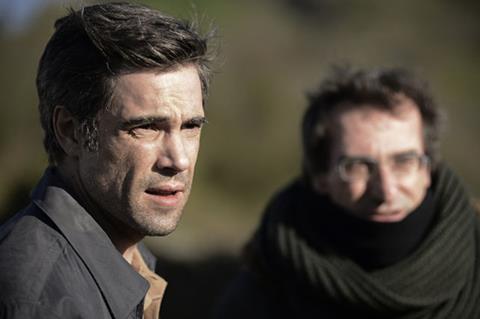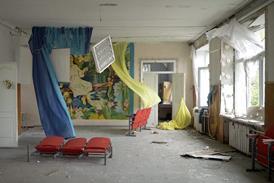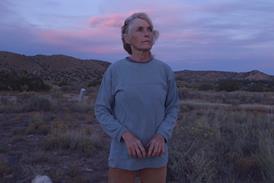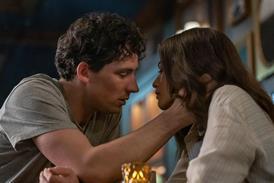Dir: Pablo Malo. Spain, 2014. 107mins

The changing face of Spanish politics, in particular the Basque region, mean that a highly-emotive film like Lasa And Zabala can now be made with a cool head and widely disseminated in the domestic marketplace, whether that be theatrically or - most probably - on the small screen
Lasa And Zabala carves out an appropriate distance to look at the facts of the case dispassionately. It’s a worthy film, if not always a compelling one.
Similar in construction to 1993’s In The Name Of The Father in its focus on an investigation into the security services and resulting campaign for justice, Lasa And Zabala centres on the search for the bodies of two young Basque men and the long legal battle to bring their murderers to justice.
Play outside Span for Lasa And Zabala will naturally be limited by the complex issues at its core, however, and, artistically, its goal is to tell a difficult story in a 107-minute running time with little room for deviation. Pablo Malo is determined to play his cards in an even-handed manner as he details a traumatic crime which took place in democratic Spain of 1983.
The first 15 minutes of Lasa And Zabala can feel like a tough hike through a sea of Basque names and bearded, sweater-wearing nationalists, but patience will ultimately be rewarded.
In October 1983, the alleged Basque terrorists Joxean Lasa and Joxi Zabala were kidnapped across the border in French Bayonne, brutally tortured, and murdered by Spain’s extra-judicial state-sponsored anti-terrorist group GAL (Groups Anti-terroristas de Liberacion). The two young men were initially sequestered in San Sebastian and eventually brought south to Alicante where they were buried in quicklime and lay unidentified for 12 years in shallow graves.
Malo, adapting Johanes Urkixo’s screenplay, wisely focuses on the crime as opposed to any culpability of its victims in ETA campaigns. GAL is shown to act with impunity at a time when Spanish police were being murdered in the Basque Country, and the film depicts noble men at work on both sides to uncover the crime and lay Lasa and Zabala to rest.
Naturally, the detective and legal work can be plodding across a 12-year campaign and so, unfortunately, is Lasa And Zabala on occasion, although it boasts lengthy, detailed scenes of torture, punctuated by lethal explosions. The film is, through the device of a dogged legal campaign fronted by local solicitor Inigo (Unax Ugalde) in the Gareth Peirce/Emma Thompson role from In The Name Of The Father, intent on looking at truth and justice in today’s Spain. (Although the case at hand is closer to the infamous TV documentary Death on the Rock).
As such, and to Malo’s credit, Lasa And Zabala carves out an appropriate distance to look at the facts of the case dispassionately. It’s a worthy film, if not always a compelling one.
Ugalde is a strong presence as the campaigning lawyer Inigo, perhaps too close to ETA, but ultimately aware of his responsibilities to the truth. Production values are workman-like; sound is particularly searing.
Production company: Abra Producciones
International sales: abra@abraprod.com
Producers: Joxe Portela, Alberto Gerrikabeitia, Joan Antoni Gonzalez
Screenplay: Johanes Urkixo
Cinematography: Aitor Mantxola
Editor: Raul Lopez
Music: Pascal Gaigne
Main cast: Unax Ugalde, Francesc Orella, Oriol Vita, Jon Anza, Cristian Merchan, Ricard Sales





















